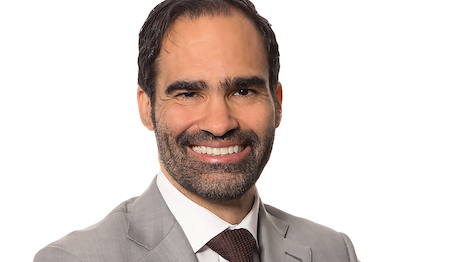 Daniel Langer is CEO of Équité
Daniel Langer is CEO of Équité
In my Luxury Strategy MBA program at Pepperdine University in Malibu, I regularly invite the who’s who in the luxury industry as guest speakers. One of the recent highlights was Megan Quinn, cofounder of Net-A-Porter, the pioneer in luxury online retailing.
We focused our fireside talk on digital luxury experiences. One of the most powerful statements that Ms. Quinn made was that “social media is the new real estate.”
The executive argued that luxury brands must see the investment into social media in a similar fashion to investing in a flagship store on Rodeo Drive in Los Angeles, Fifth Avenue in New York or Rue Royale in Paris. Hence, the digital presence is at least as important as the traditional physical presence.
Advent of immersive reality
Équité Research identified that up to 95 percent of all luxury purchase decisions are formed during the digital journey, making all digital brand touch points the new moments of truth.
In a recent discussion at a flagship store of a luxury watch brand, this was confirmed. Practically all its customers already know what they want when they walk in. The physical experience, if still part of an individual purchase journey, is only to confirm and further shape the brand perception. It is not anymore the brand- and preference-defining touch point.
The metaverse, therefore, is becoming the most critical opportunity and risk for luxury brands.
The metaverse takes the Internet from a two-dimensional experience where there is a separation between the person and the action through a flat screen to a fully immersive reality where people feel inside the scenes. It will change everything from working in teams to traveling to places and shopping.
As shopping in the metaverse reaches not only a step change in realistic experiences, but also offers experiences that cannot be done in a physical reality – think of the rich, immersive and disruptive experiences online games offer – the metaverse will not just be an additional touch point, but it will be the most immersive and thus most critical touch point.
Hence, luxury brands must start thinking now how their flagship store in the metaverse will look like. If it is just another online store, they will miss the mark. If it is just a simulation of an existing flagship, they will not tap the potential of the metaverse.
While many luxury brands are strategizing on how to get ready, the tech platform companies are already making significant market moves that will impact the future significantly.
Game on
Microsoft’s game-changing $75 billion move to acquire Activision, the game company responsible for blockbusters such as Call of Duty, is a signal that everything is changing.
What Microsoft, Facebook, Tencent and other platform players are doing with their significant metaverse investments is to “own the customer access” to the metaverse. And they will charge generously to anyone who wants access.
This underlines Ms. Quinn’s assessment to see digital as the new real estate.
When online games and other platforms are increasingly becoming a combination of social networks and marketplaces, luxury brands will need to move fast if they still want to lead the change in the new digital reality.
For luxury brands it means to redefine customer experiences and making them consistent across multiple access points from classical in-store experiences to virtual flagship stores.
A more complex customer journey means that companies need to rethink all aspects of customer interactions. They also need to strengthen the brand storytelling significantly, as the virtual world will require much more exciting experiences, and it will be much easier for clients to compare brands and their executions.
Brand storytelling is a traditional weak spot for luxury brands. Équité Research estimates that up to 90 percent of today’s luxury brands lack internal and external clarity on their brand positioning.
In many audits we identified that even among the top management teams of luxury brands there is often no consistent view on brand values and core positioning elements.
In other words, the luxury industry that has relied for centuries on craftsmanship, has neglected brand storytelling widely. And this has already proven deadly for many brands during the last decade, when digital transformation opened brands up to larger audiences.
THE METAVERSE WILL require a much more radical approach that many brands are not prepared for at all.
And speed will matter.
Microsoft’s move proves that the tech platform players are already moving fast in owning the consumer access. They already own the real estate that brands need in the future.
If luxury brands play wait-and-see again, as they did at the start of online shopping, they will pay a significant premium later. For many, it will be too late.
Now is the time to act. It is the time to audit and optimize the brand story, to transform the mindset towards a holistic metaverse thinking, and to lead the change. Only then will a flagship in the metaverse be relevant and exciting for customers.
Daniel Langer has been named one of the Global Top Five Luxury Key Opinion Leaders to Watch 2021 by Netbase Quid. He is CEO of luxury, lifestyle and consumer brand strategy firm Équité, and the executive professor of luxury strategy and extreme value creation at Pepperdine University in Malibu, California. He consults some of the leading luxury brands in the world, is the author of several luxury management books, a global keynote speaker, and holds luxury masterclasses in Europe, United States and Asia. Follow @drlanger